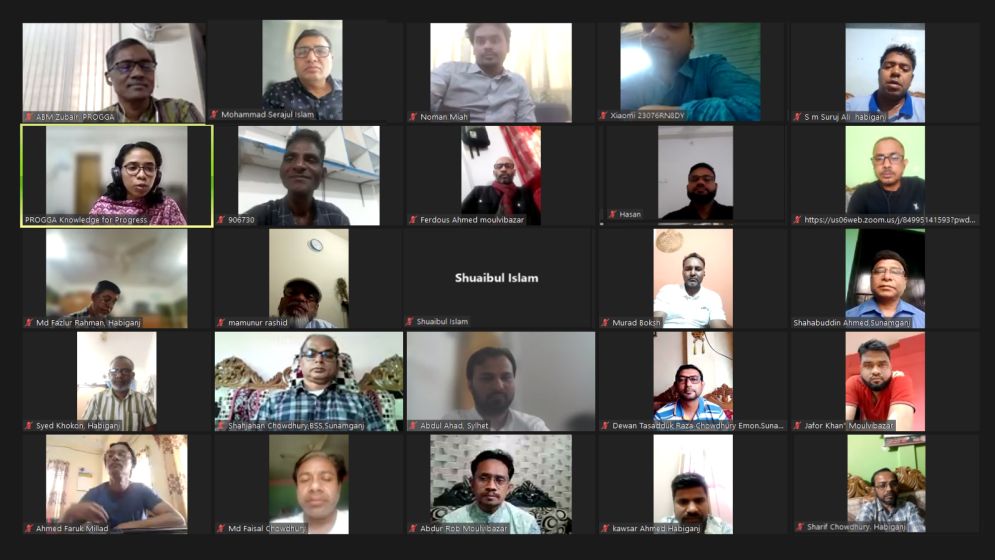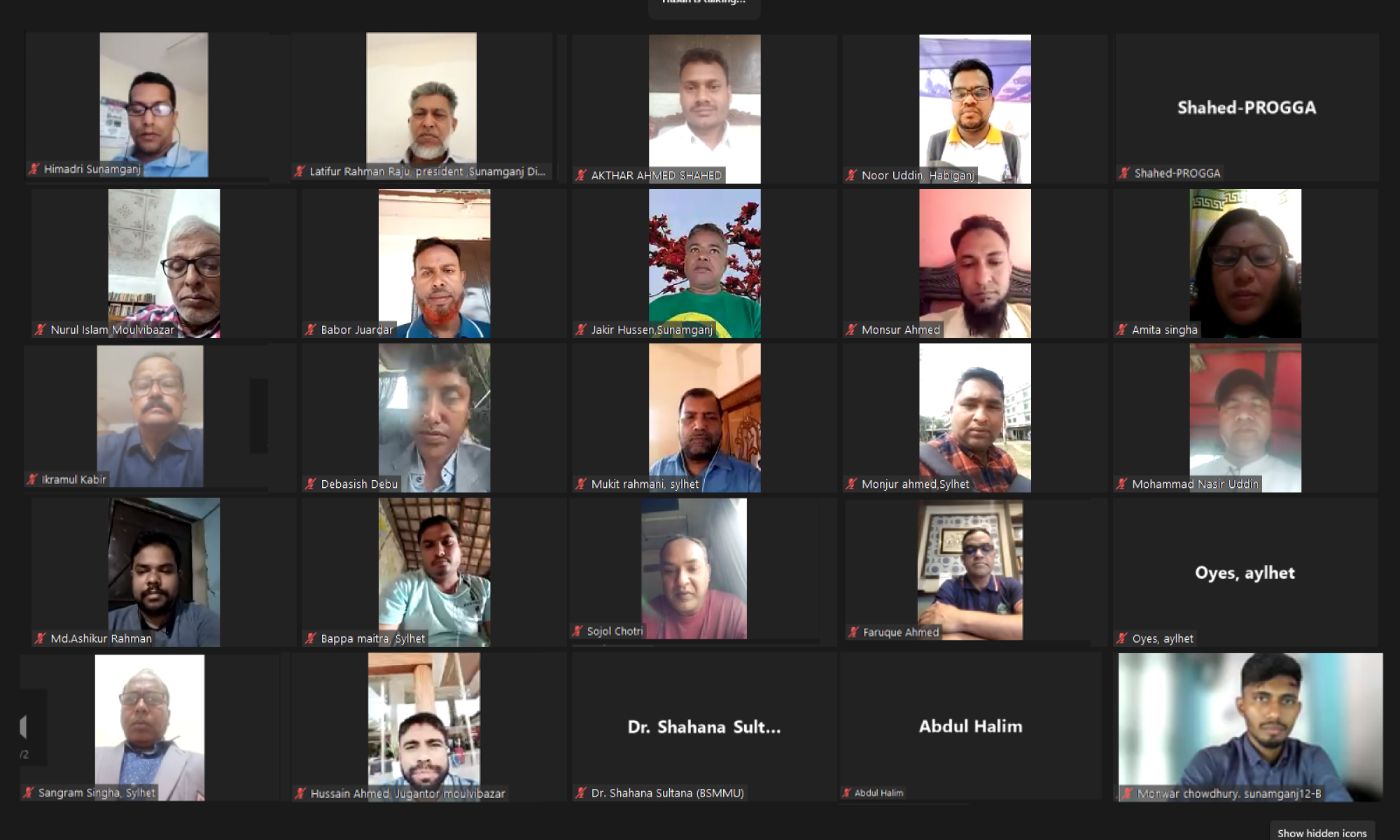Hypertension cases on the rise in Bangladesh; Experts call for increased budget and medicine accessibility

Journalist Workshop in Sylhet
The prevalence of hypertension in
Bangladesh is increasing at an alarming rate, prompting calls for better access
to treatment and sustained funding.
While free medicine initiatives have been
launched to address the surge, experts emphasize the need for these medications
to be available across all healthcare facilities, especially at the grassroots
level, to effectively combat hypertension and related non-communicable diseases
(NCDs) that contribute to a significant number of deaths in the country.
These points were underscored during a
virtual workshop titled “Necessity of Increasing Budgetary Allocation to Combat
Hypertension: Bangladesh Perspective,” held on February 22, 2025.
The workshop, organized by PROGGA
(Knowledge for Progress) with support from the Global Health Advocacy Incubator
(GHAI), brought together 47 journalists from Sylhet division, representing
print, electronic, and online media outlets.
At the event, participants were informed that NCDs such as heart disease, stroke, cancer, kidney disease, respiratory diseases, diabetes, and hypertension account for 71% of all deaths in Bangladesh.

However, the country’s budget allocation
for combating NCDs remains critically low, comprising only 4.2% of the total
health budget.
A 2024 World Health Organization (WHO)
report highlighted that the continuous supply of medications remains one of the
biggest challenges in NCD care in Bangladesh.
The report also noted that despite the
country's commitment to tackling NCDs as part of its Primary Health Care (PHC)
strategy, funding and resource allocation have yet to align with these goals.
ABM Zubair, Executive Director of PROGGA,
participated as a discussant in the workshop, while PROGGA's Director Md.
Shahedul Alam and Coordinator Sadia Galiba Prova delivered key presentations on
hypertension control.
The workshop concluded with a call for
increased financial investment and a more robust approach to ensure that
essential medicines reach those who need them most, particularly in underserved
areas.
—

